WWII German Aircraft Armament (100% new molds) 1/48
16,50€
Out of stock

*Please check our Privacy Policies to see how to we use your personal data.
*Por favor revisa nuestra Política de Privacidad para ver como tratamos tus datos personales
WWII German Aircraft Armament
Luftwaffe was armed with a large range of weapons of different types and different purposes. The main German bombs of World War II were bombs weighing 50. 250. 500. 1000. 1800 and 2500 kilograms. The most common were high-explosive bombs. They, in turn, were thin-walled, type SC and thick-walled, type SD, and had side detonators. To reduce the depth of penetration into the ground and increase the shock wave, some bombs could be equipped with a ring in the bow. Also, some bombs could have elongated detonators – the so-called Dinort rods * (in German – Dinort-stäbe), which led to a bomb explosion before the bomb itself touches the ground. Bomb carriers were both classic bombers (for example, Ju 88 or He 111), and attack aircraft or fighters, on the suspension of which bombs weighing up to 500 kilograms could be placed. Naval aviation, in addition to bombs, also used torpedoes, using them in various theaters of war – in the Mediterranean, in the Atlantic and in the North of Europe.
Scale
1:48
Time period
WW2
Box size
217 x 135 x 32 mm
Armamento de los aviones alemanes de la Segunda Guerra Mundial
La Luftwaffe estaba armada con una gran variedad de armas de diferentes tipos y diferentes propósitos. Las principales bombas alemanas de la Segunda Guerra Mundial eran bombas de 50. 250. 500. 1000. 1800 y 2500 kilogramos. Las más comunes eran las bombas de alto poder explosivo. A su vez, eran de pared delgada, tipo SC y de pared gruesa, tipo SD, y tenían detonadores laterales. Para reducir la profundidad de penetración en el suelo y aumentar la onda expansiva, algunas bombas podían estar equipadas con un anillo en la proa. Además, algunas bombas podían tener detonadores alargados – las llamadas barras Dinort * (en alemán – Dinort-stäbe), que provocaban la explosión de la bomba antes de que ésta tocara el suelo. Los portadores de bombas eran tanto bombarderos clásicos (por ejemplo, Ju 88 o He 111), como aviones de ataque o cazas, en cuya suspensión podían colocarse bombas de hasta 500 kilogramos. La aviación naval, además de las bombas, también utilizaba torpedos, empleándolos en diversos teatros de guerra: en el Mediterráneo, en el Atlántico y en el norte de Europa.
Escala
1:48
Período
SEGUNDA GUERRA MUNDIAL
Tamaño de la caja
217 x 135 x 32 mm



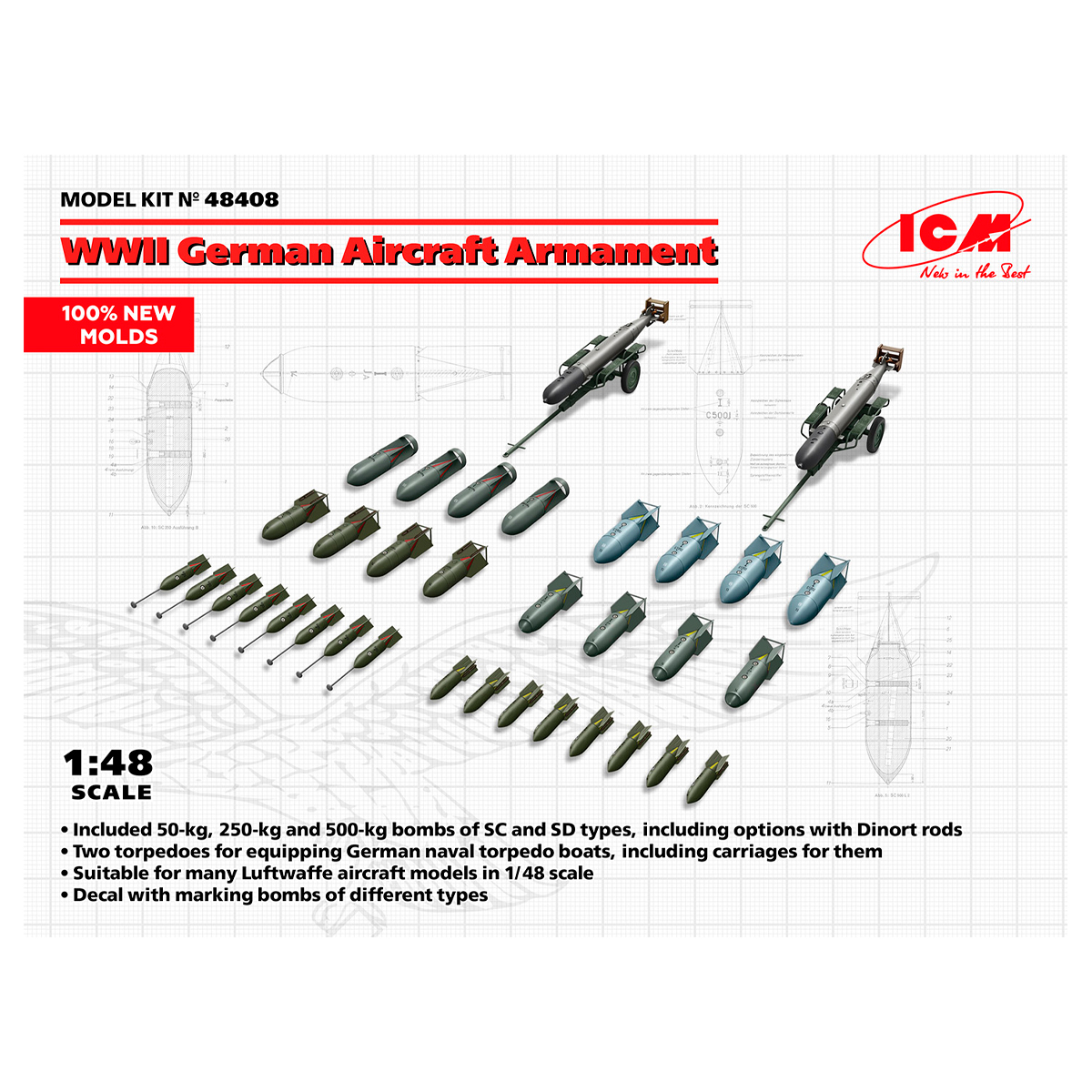
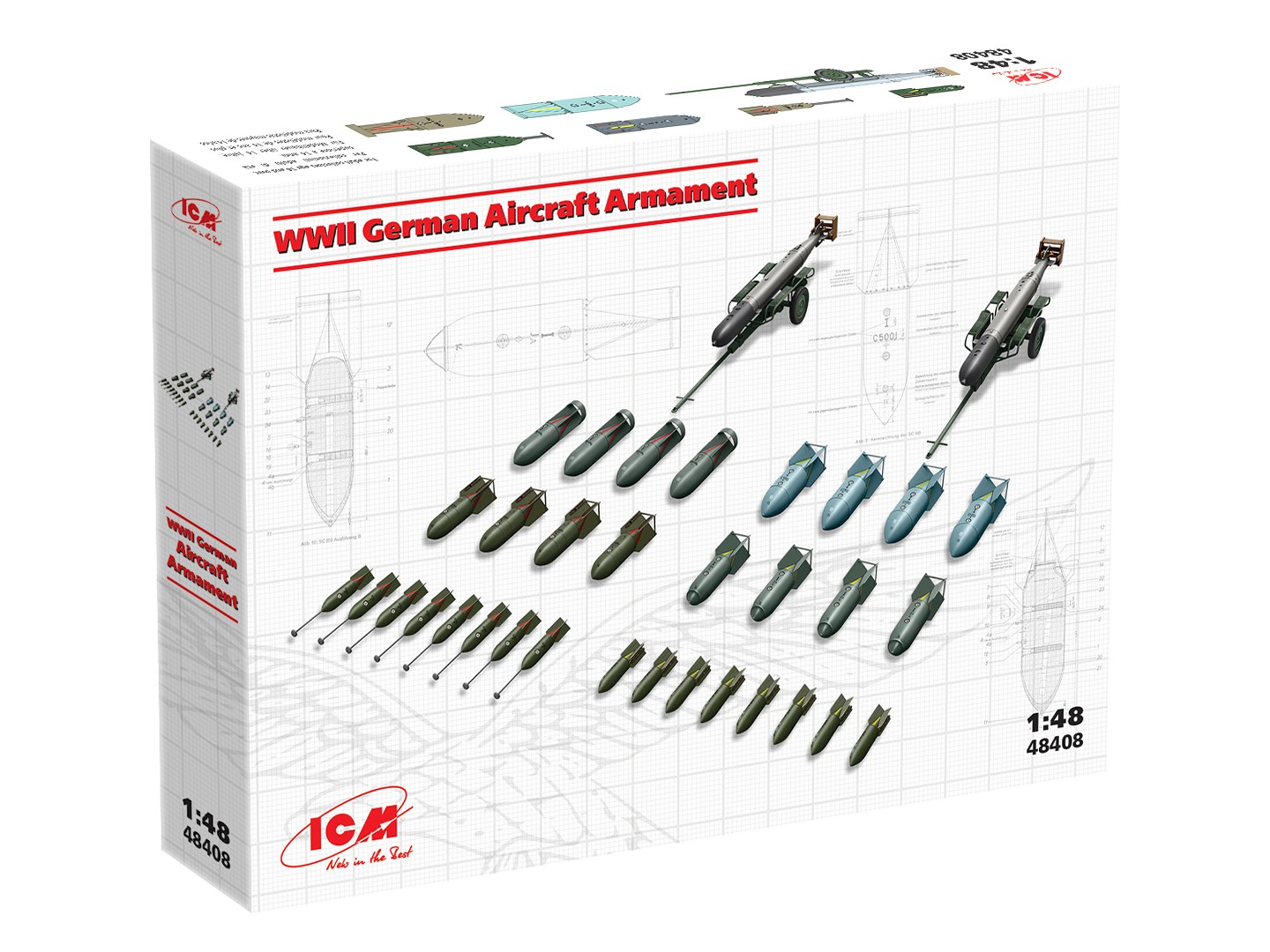
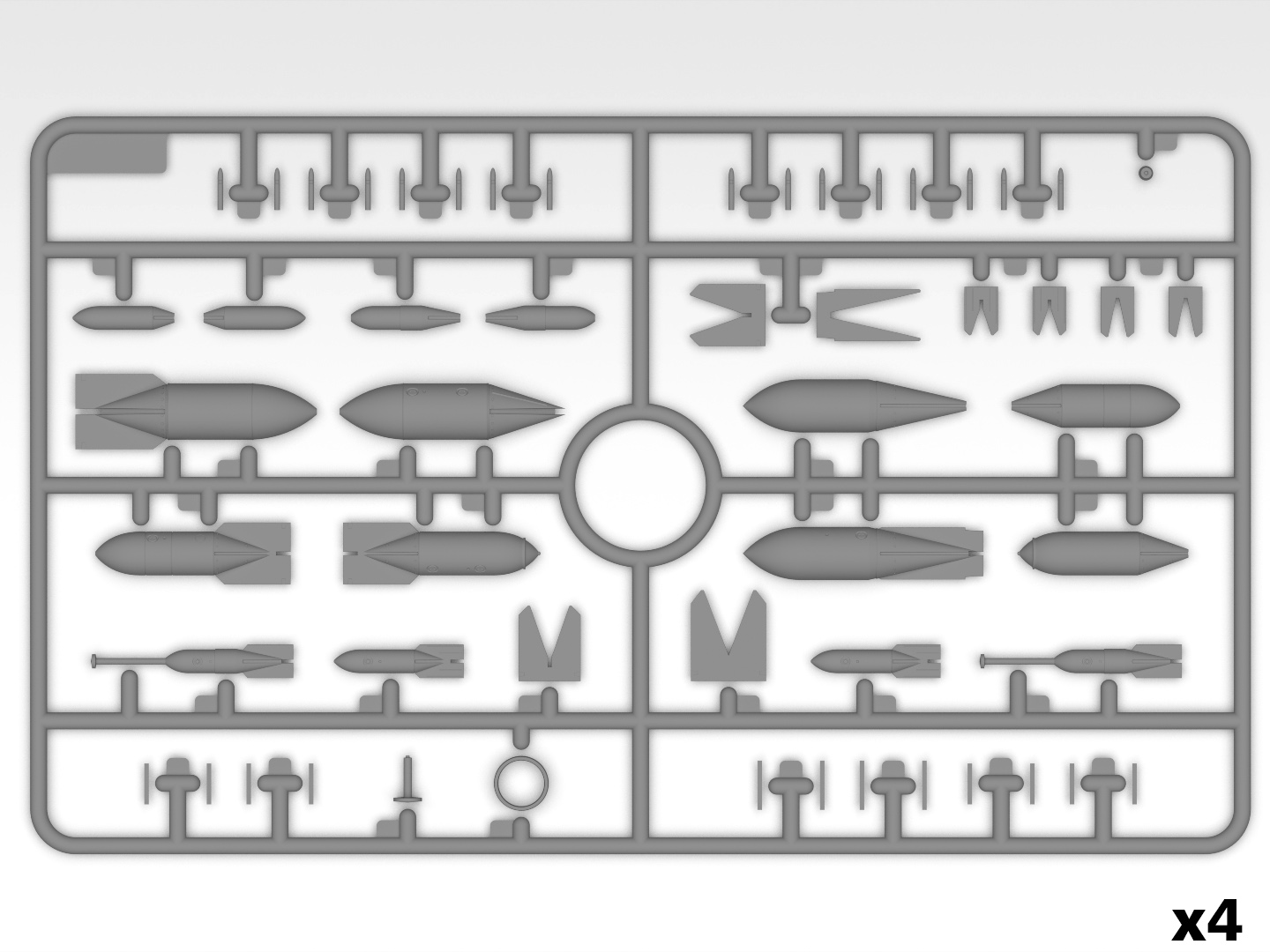
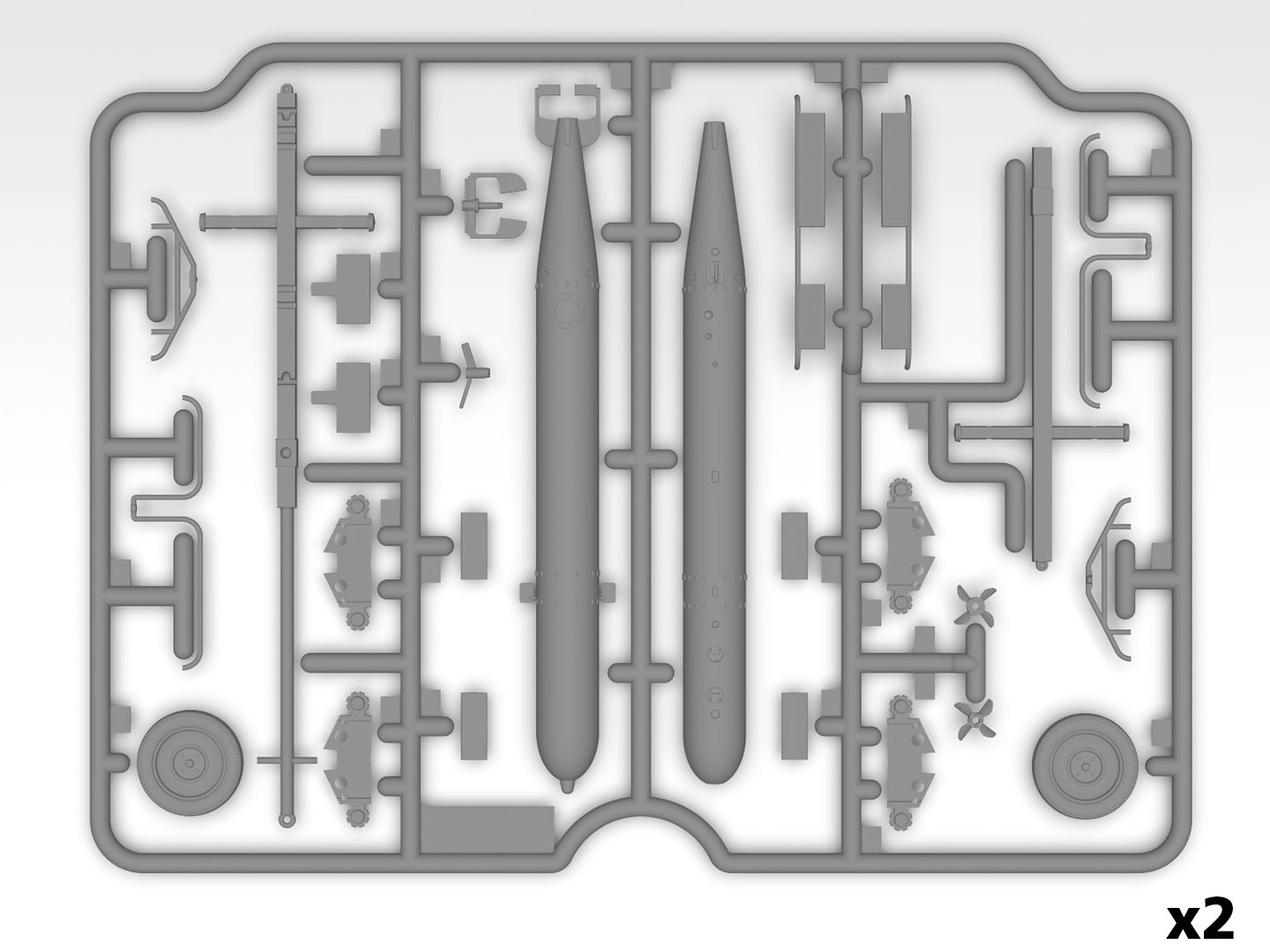
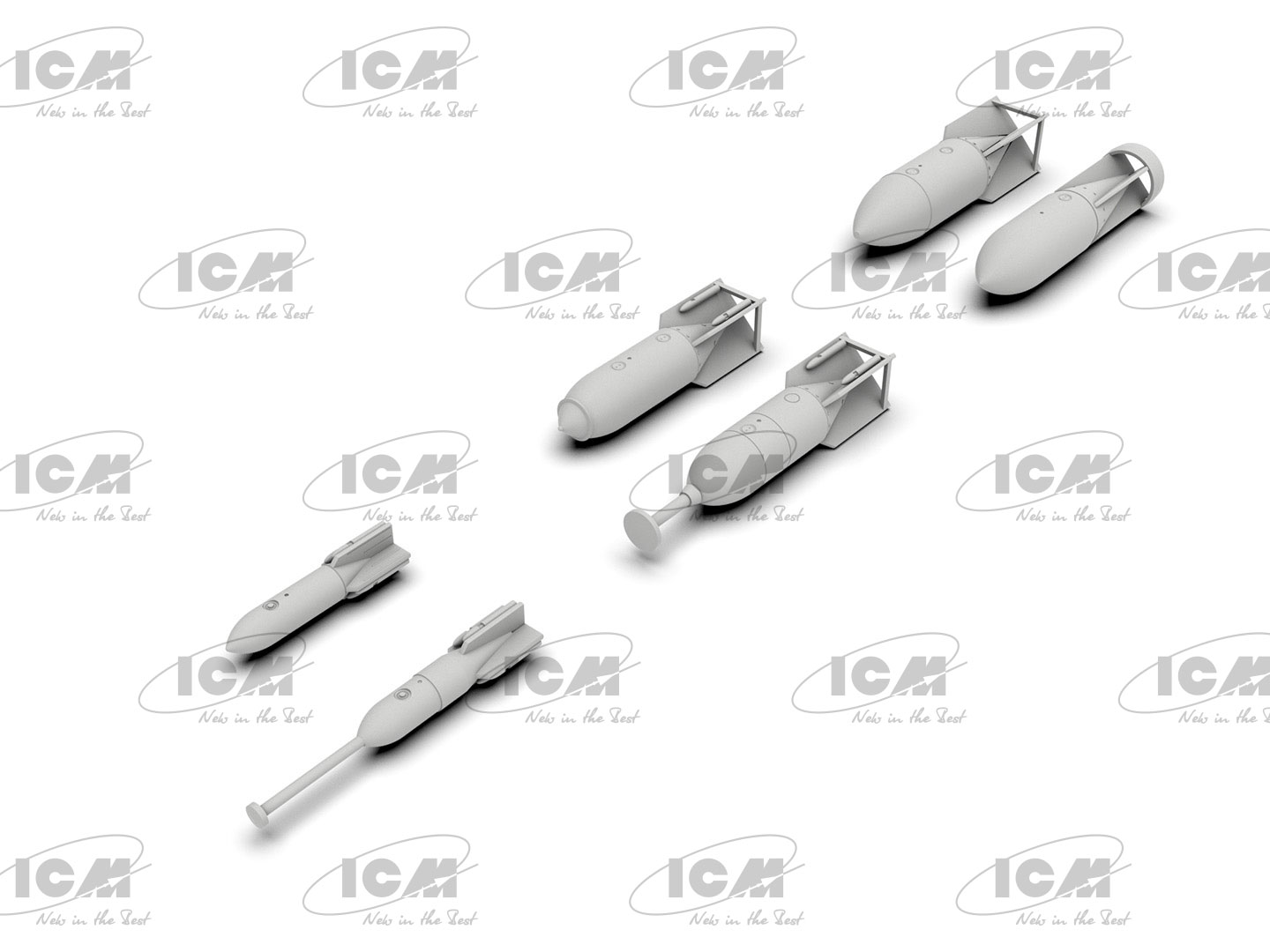
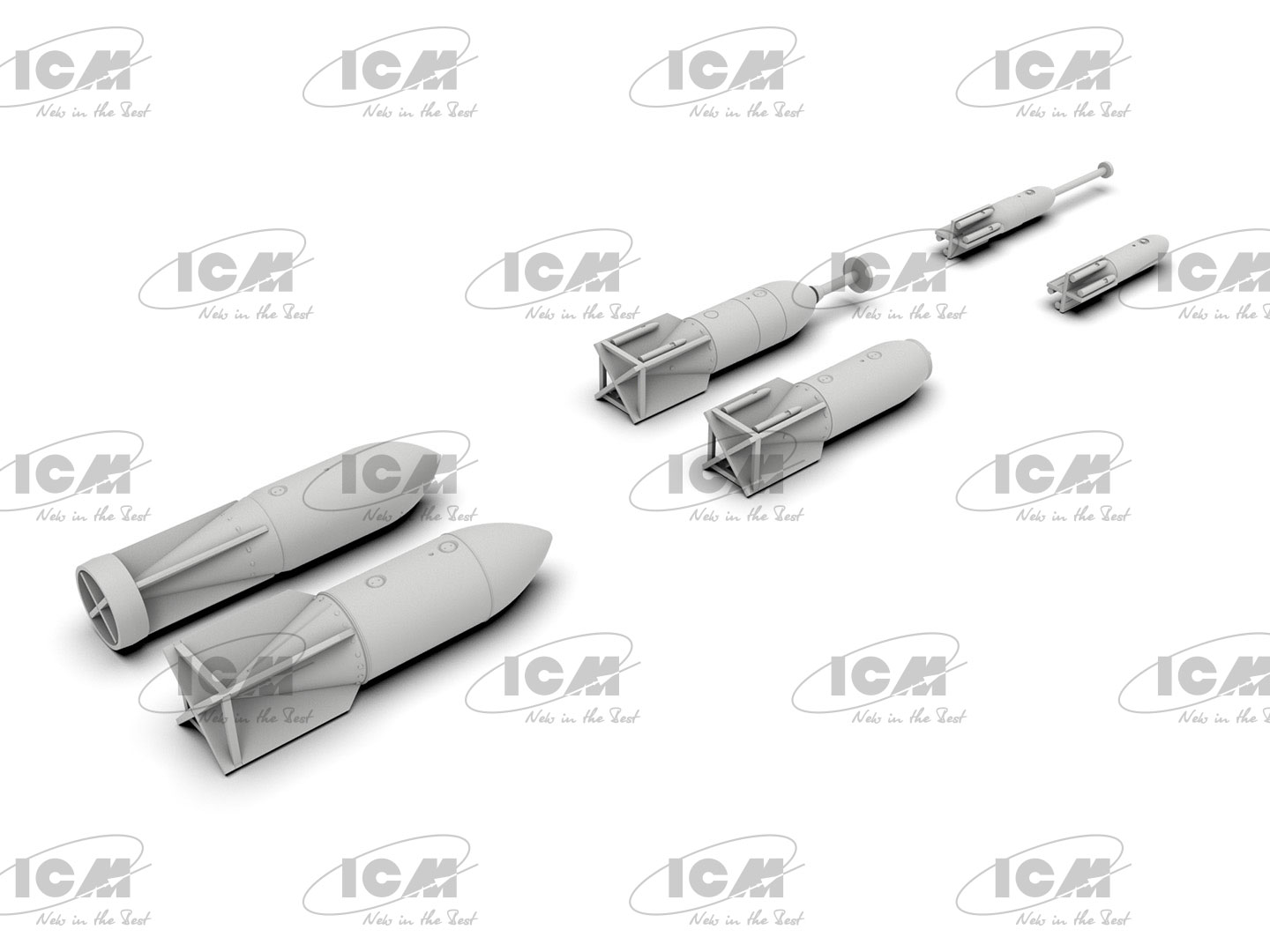
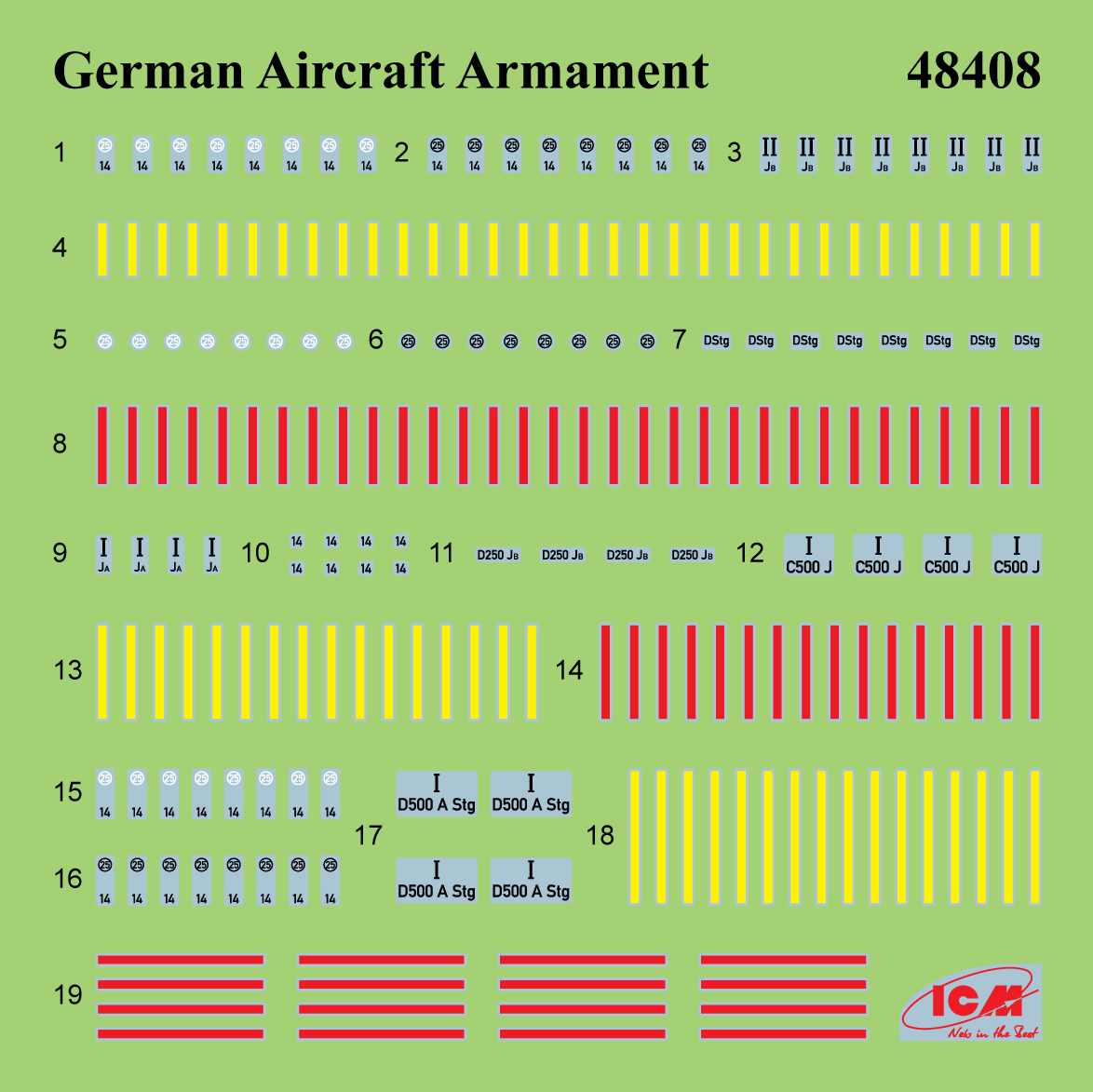
 Request of SDS product data file / Product security
Request of SDS product data file / Product security